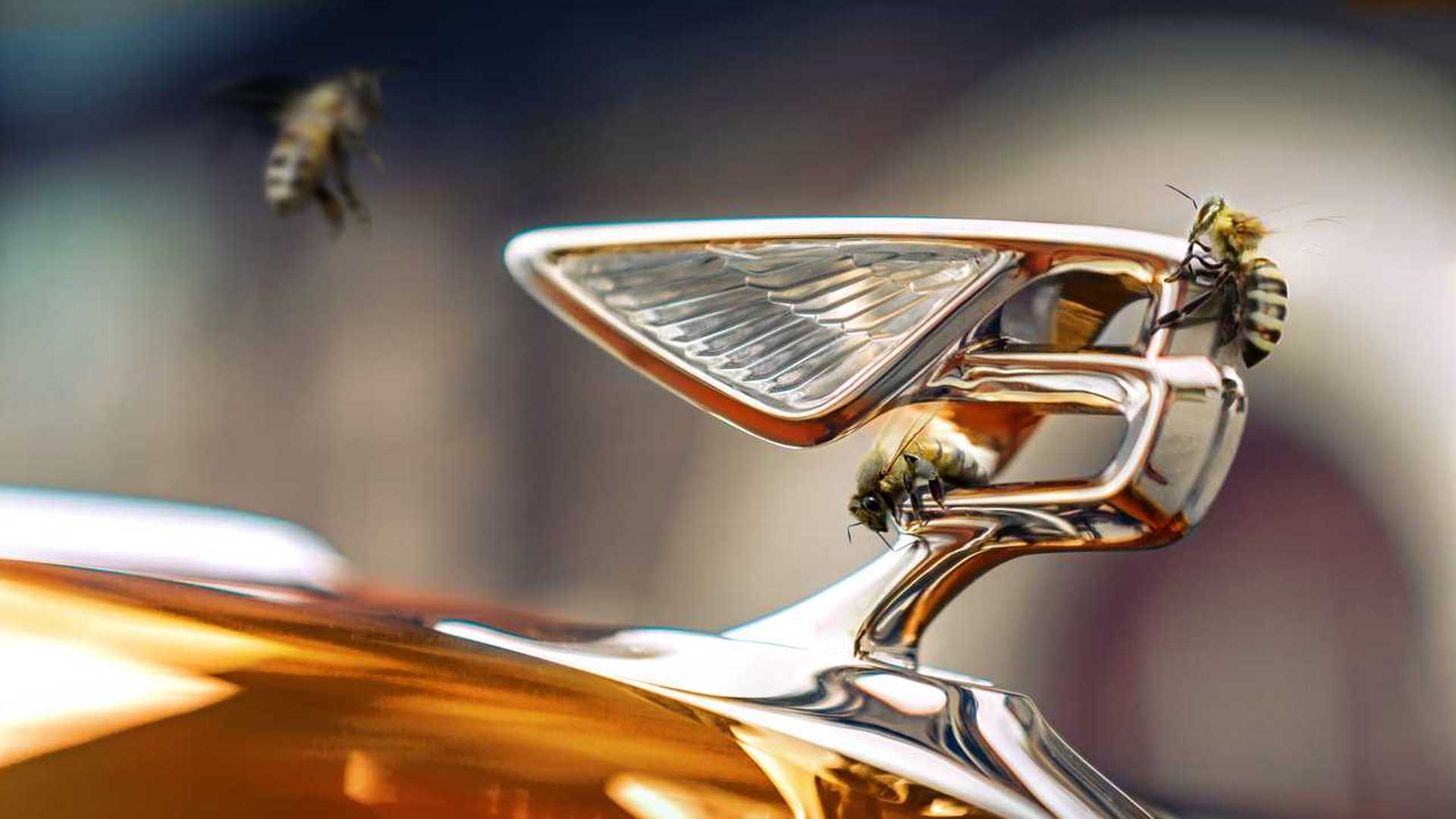Not what you’re expecting.
Bentley has brought a whole new meaning to the term “Flying B” with the introduction of flying, erm, “bees” to its factory in Crewe.
Two hives homing a total of 120,000 British Apis Mellifera bees have been installed onto the factory site, which borders the Cheshire countryside and offers the perfect habitat for the insects.
The pair of national hives, which have been installed with the help of local beekeepers, have the ability to produce around 15 kilograms (33 pounds) – or approximately 50 jars – of honey.
But why is a car company venturing into beekeeping? Well, it’s all down to improving their environmental impact.
“Although our Pyms Lane site is over 80 years old, we’re constantly looking for ways to improve our environmental footprint and achieve our goal of carbon-neutral operations,” said Peter Bosch, Bentley’s Member of the Board for Manufacturing. “We already have the largest solar car port in the U.K. on our site – which means that all of our electricity use is now either solar or certified green – so we’ve also started to look at ways we can use our site to increase local biodiversity.”
“Bees populations are in decline in the U.K., so installing two hives to help boost biodiversity is a great way to make use of the grassland at the edge of the site,” Bosch added. “Our ‘flying bees’ are honeybees that have been bred by local beekeepers with over fifty years’ experience. With their help, we’re checking on them every week and it’s great to see that they’re already starting to produce the first Bentley honey.”
Gallery: Bentley redefines its Flying Bee




- Share on Facebook
- Share on Twitter
- Share on LinkedIn
- Share on Flipboard
- Share on Reddit
- Share on WhatsApp
- Send to email
INTRODUCING BENTLEY’S NEW FLYING BEES
- Bentley Motors introduces British honey bees to its site in Crewe
- Two bee hives are now home to 120,000 honey bees which have been installed on the periphery of the Bentley campus
- Biodiversity initiative follows installation of UK’s largest car park solar system
(Crewe, 31st July 2019) Bentley Motors’ historic site in Crewe is already famous for producing the models that have carried its “flying B” emblem on the bonnet for one hundred years, but thanks to a new biodiversity initiative, the company is now creating a buzz with the introduction of 120,000 “flying bees” of a different kind.
With the help of local beekeepers, two national hives, which are collectively home to 120,000 British Apis Mellifera honey bees, have been successfully installed on grassland at the edge of the Bentley site. The area has been sown with bee friendly wild flowers – and as it borders the Cheshire countryside, it is proving to be the perfect habitat for the bees, who are settling in well and showing promising signs for the first honey harvest at the end of the summer. Each hive has the potential to create around 15kg – or approximately 50 jars of honey.
Peter Bosch, Bentley’s Member of the Board for Manufacturing explains:
“Although our Pyms Lane site is over 80 years old, we’re constantly looking for ways to improve our environmental footprint and achieve our goal of carbon neutral operations.
“We already have the largest solar car port in the UK on our site – which means that all of our electricity use is now either solar or certified green – so we’ve also started to look at ways we can use our site to increase local biodiversity.
“Bees populations are in decline in the UK, so installing two hives to help boost biodiversity is a great way to make use of the grassland at the edge of the site.
“Our “flying bees” are honeybees that have been bred by local beekeepers with over fifty years’ experience. With their help, we’re checking on them every week and it’s great to see that they’re already starting to produce the first Bentley honey”.
Source: Read Full Article
